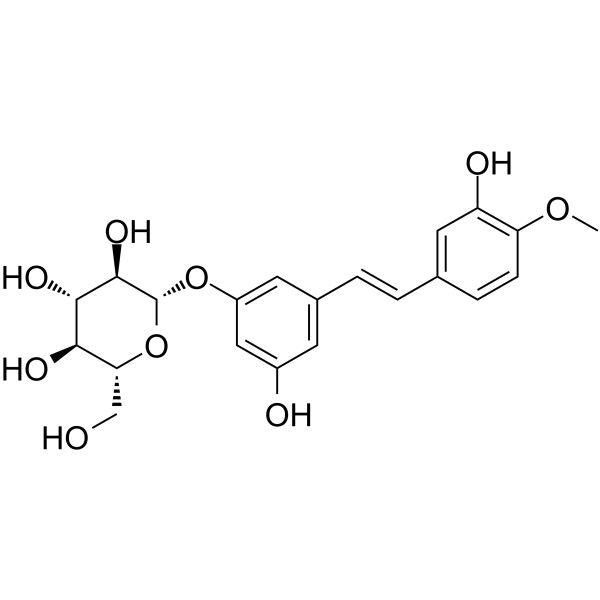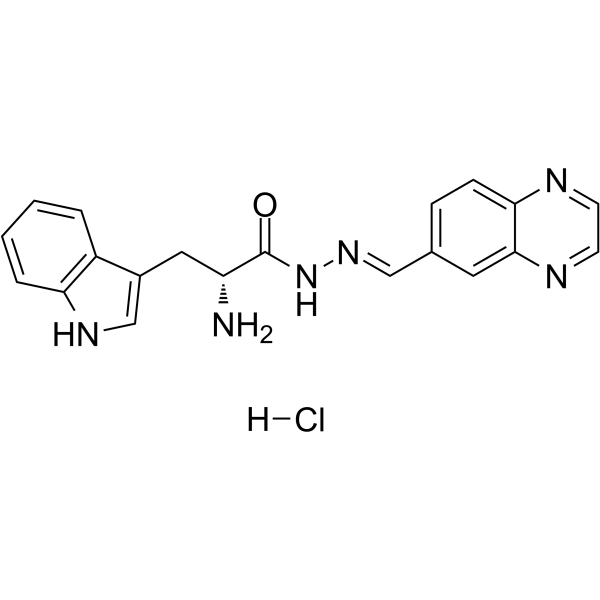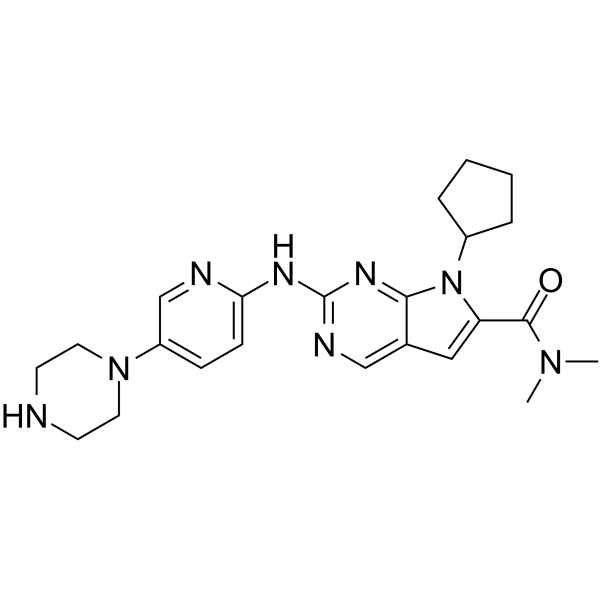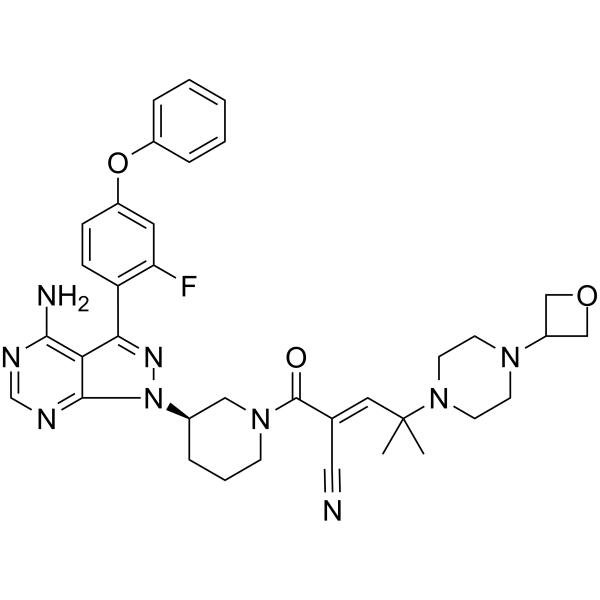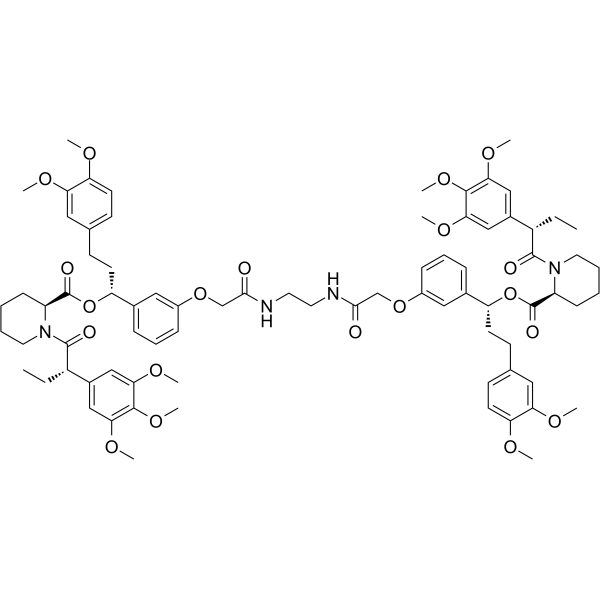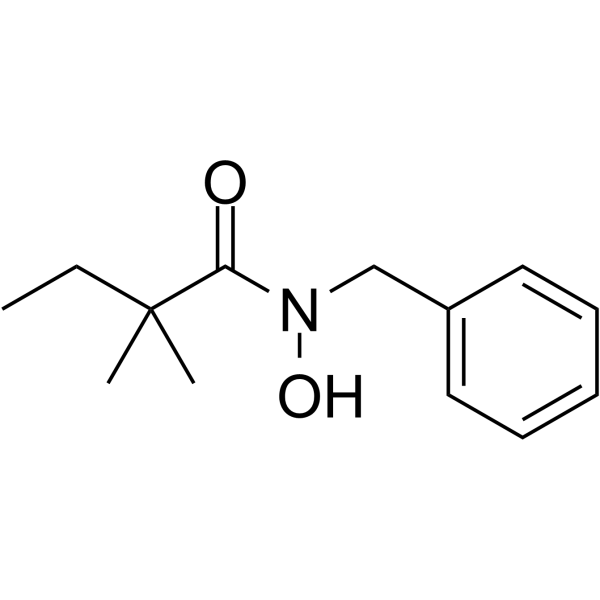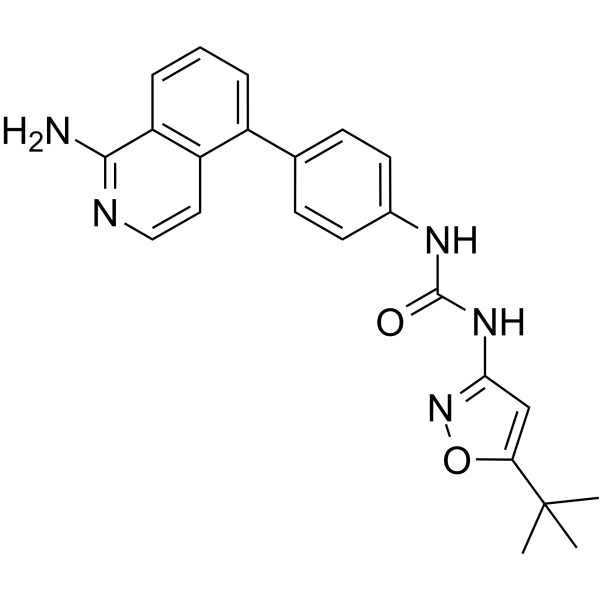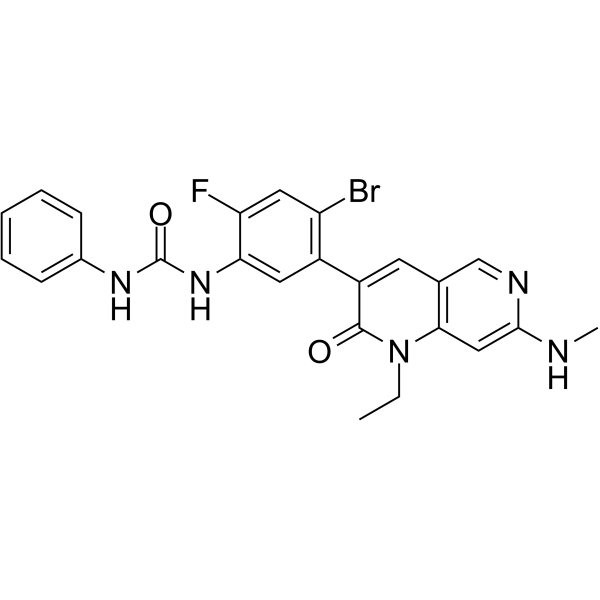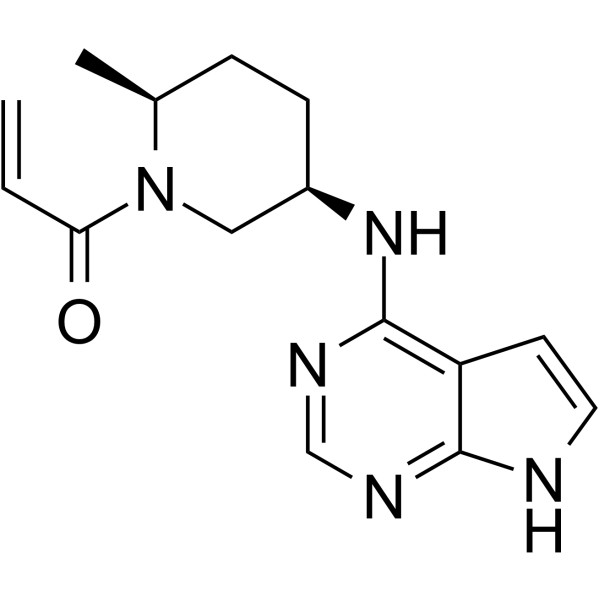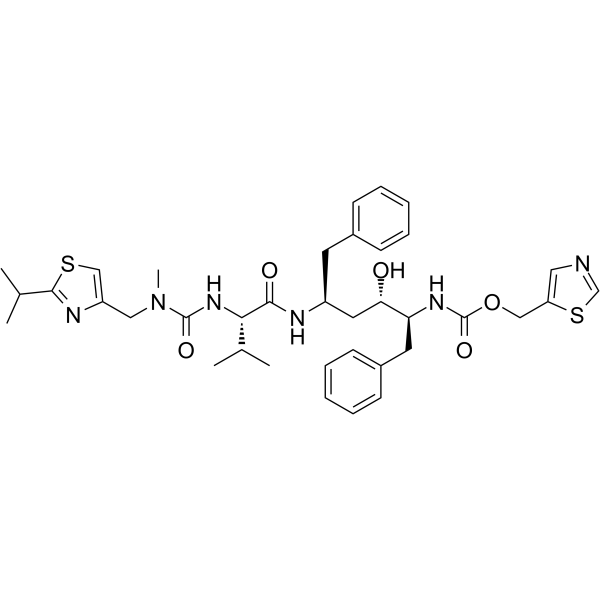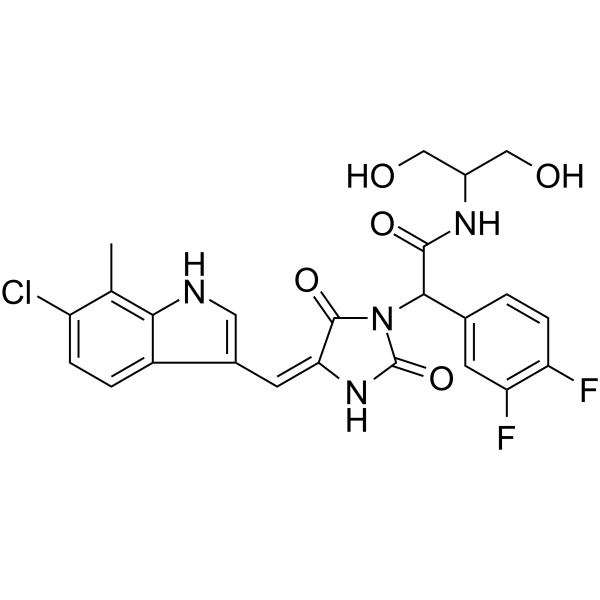|
BP10421
|
Rasagiline
|
|
|
|
|
Rasagiline is an inhibitor of monamine oxidase used as adjunctive therapy in combination with levodopa and carbidopa in the management of Parkinsons disease.
|
|
BP10678
|
Rasagiline Mesylate
|
|
|
|
|
Rasagiline Mesylate is a novel MAO-B inhibitor, which can treat idiopathic Parkinson's disease.
|
|
BP10030
|
Rebastinib
|
|
|
|
|
DCC-2036 (Rebastinib) is a conformational control Bcr-Abl inhibitor for Abl1(WT, IC50: 0.8 nM) and Abl1(T315I, IC50: 4 nM), also inhibits LYN, SRC, HCK, FGR, FLT3, KDR, and Tie-2, and low activity to c-Kit.
|
|
BP10028
|
Regorafenib monohydrate
|
|
|
|
|
Regorafenib Monohydrate is a novel oral multikinase inhibitor with IC50 values of 13, 4.2, 46, 22, 7, 1.5, 2.5, 28, 19 nM for VEGFR1, murine VEGFR2, murine VEGFR3, PDGFR-β, KIT, RET, RAF-1, B-RAF and B-RAF(V600E) respectively.
|
|
BP10777
|
Remibrutinib
|
|
|
|
|
Remibrutinib inhibits BTK activity with an IC50 value of 0.023 μM in blood. Remibrutinib is an effective and orally active Bruton tyrosine kinase inhibitor (IC50: 1 nM). Remibrutinib has the potential for Chronic urticaria (CU) treatment.
|
|
BP10801
|
Repotrectinib
|
|
|
|
|
TPX-0005 is a potent ALK/ROS1/TRK inhibitor, with IC50 of 1.01 nM, 5.3 nM, 1.08 nM and 1.26 nM for WT ALK, SRC, ALK L1196M and ALK G1202R, respectively.
|
|
BP10426
|
RG13022
|
|
|
|
|
RG13022 is a tyrosine kinase inhibitor; inhibits the autophosphorylation reaction of the EGF receptor (IC50: 4 μM).
|
|
BP10427
|
RG14620
|
|
|
|
|
RG14620 is an epidermal growth factor receptor (EGFR) inhibitor.
|
|
BP10174
|
RGD peptide (GRGDNP)
|
|
|
|
|
RGD peptide GRGDNP(2TFA) is a integrin-ligand interactions inhibitor.
|
|
BP10648
|
Rhapontin
|
|
|
|
|
1. Rhaponticin(Rhaponiticin) can alleviate liver steatosis and improve blood glucose and lipid profiles in KK/Ay diabetic mice, indicates that rhaponticin has a noticeable antidiabetic effect and could be potentially used as a new agent to treat type 2 diabetes mellitus and its complications.
|
|
BP10336
|
Rhosin hydrochloride
|
|
|
|
|
Rhosin hydrochloride is an effective and specific RhoA subfamily Rho GTPases inhibitor, which specifically binds to RhoA to inhibit RhoA-GEF interaction (Kd: ~ 0.4 uM). Rhosin hydrochloride does not interact with Cdc42 or Rac1, nor the GEF, LARG. Rhosin hydrochloride causes cell apoptosis.
|
|
BP10237
|
Ribociclib
|
|
|
|
|
LEE011 is an orally available, and highly specific CDK4/6 inhibitor (IC50:10/39 nM).
|
|
BP10656
|
Rilzabrutinib
|
|
|
|
|
PRN1008 is a reversible covalent, selective and oral active inhibitor of Bruton’s Tyrosine Kinase (BTK)(IC50 of 1.3 nM).
|
|
BP10903
|
Rimiducid
|
|
|
|
|
Rimiducid is a lipid-permeable tacrolimus analogue, homodimerizing an analogue of human protein fkbp12 and binding to wild-type fkbp12 with 1000-fold lower affinity. Rimiducid is a dimerizer agent that acts by cross-linking the FKBP domains. It dimerizes the Caspase 9 suicide switch and rapidly induces apoptosis.
|
|
BP10905
|
RIPA-56
|
|
|
|
|
RIPA-56 is an inhibitor of RIP1
|
|
BP10583
|
RIPK1-IN-4
|
|
|
|
|
RIPK1-IN-4 is a potent and selective type II kinase receptor interacting protein 1 (RIP1) kinase inhibitor and binds to a DLG-out inactive form of RIP1 (IC50s of 16 nM and 10 nM for RIP1 and ADP-Glo kinase).
|
|
BP10539
|
Ripretinib
|
|
|
|
|
Ripretinib is an orally bioavailable inhibitor of KIT and PDGFRA.
|
|
BP10780
|
Ritlecitinib
|
|
|
|
|
PF-06651600 is a potent JAK3-selective inhibitor (IC50: 33.1 nM).
|
|
BP10646
|
Ritonavir
|
|
|
|
|
Ritonavir is a peptidomimetic agent that inhibits both HIV-1 and HIV-2 proteases. Ritonavir is highly inhibited by serum proteins but boosts the effect of other HIV proteases by blocking their degradation by cytochrome P450.
|
|
BP10485
|
RO-5963
|
|
|
|
|
RO-5963 is a dual inhibitor of p53-MDM2 and p53-MDMX (IC50s: ~17 nM and ~24 nM, respectively).
|
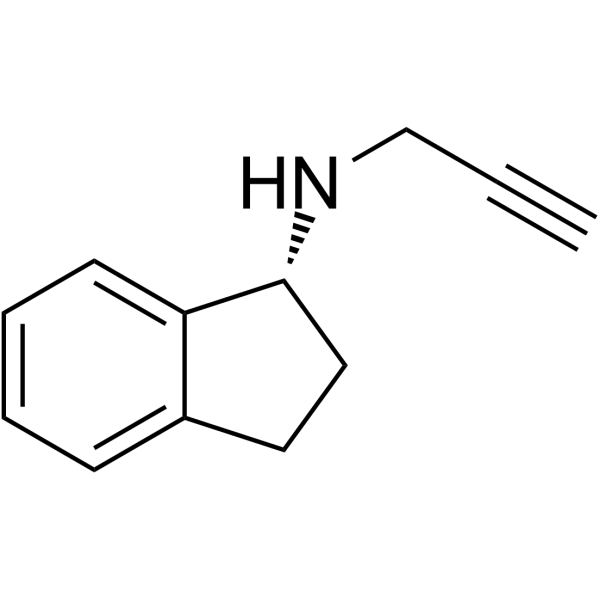

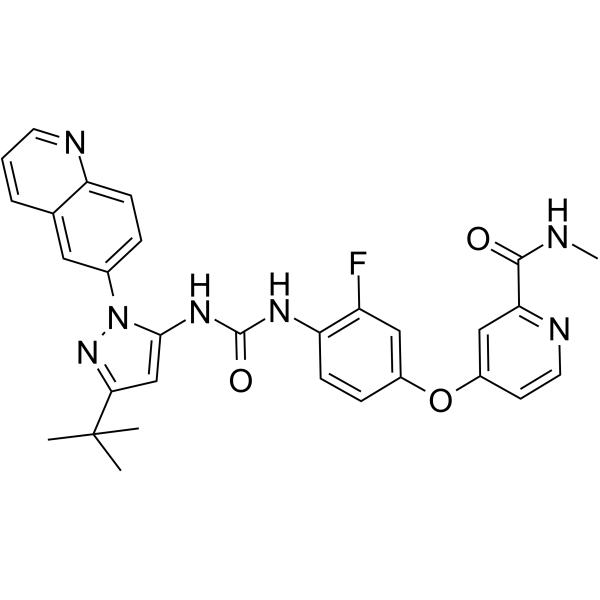
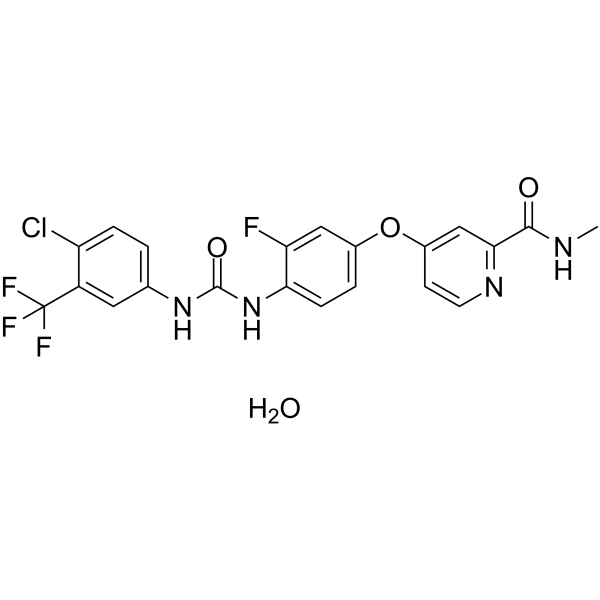
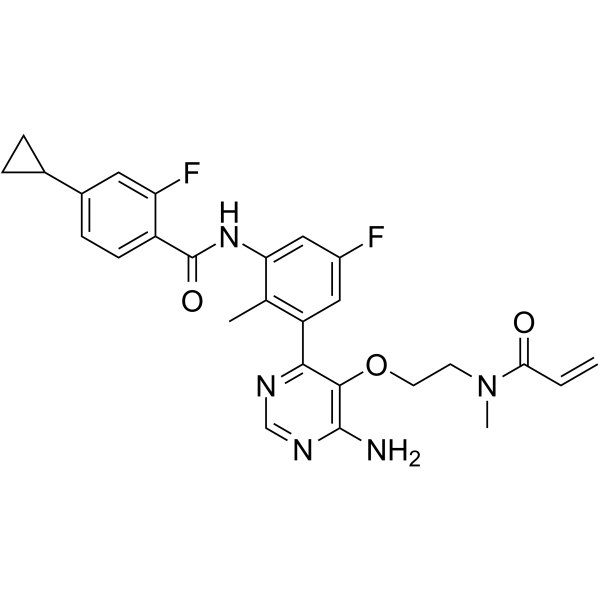
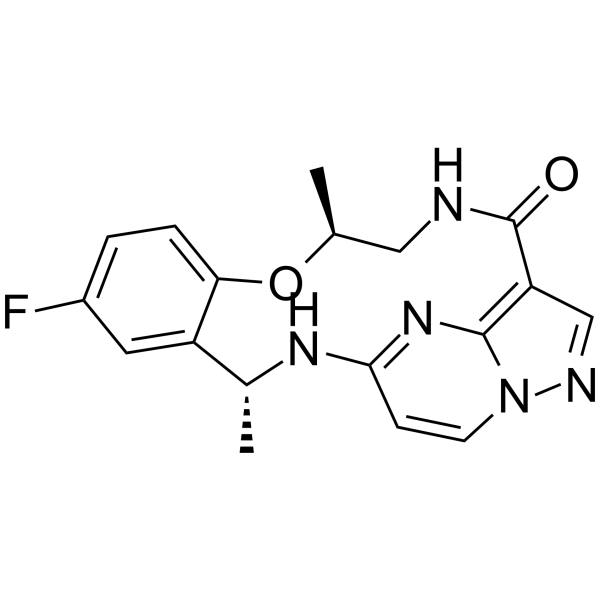
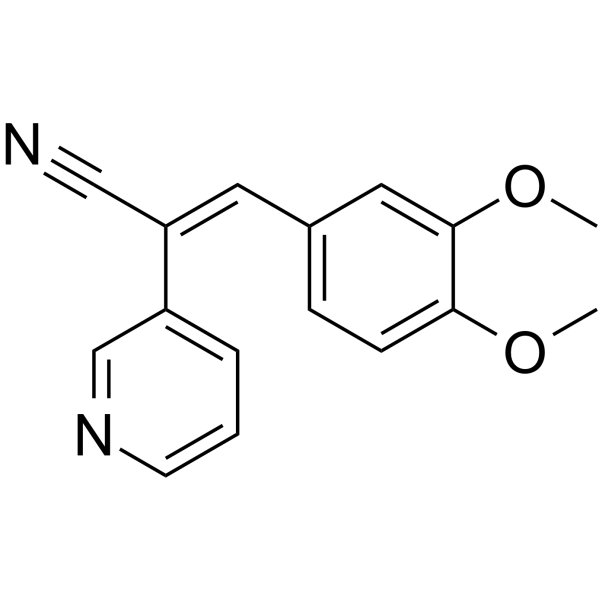
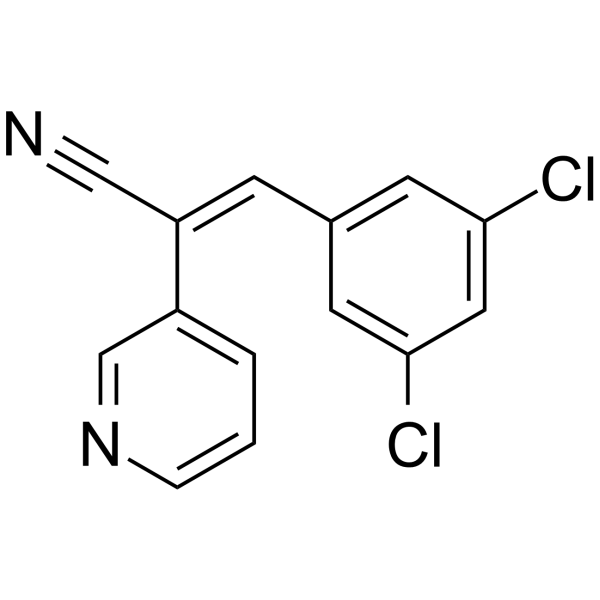
.gif)
